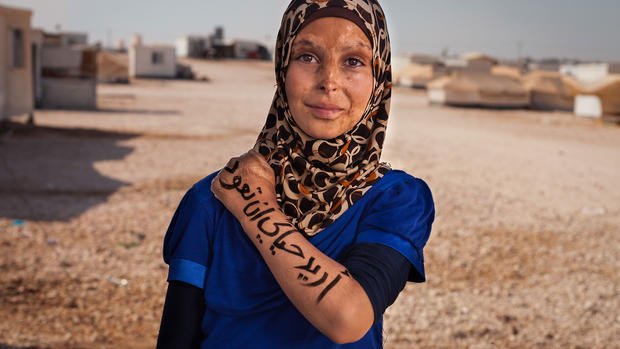U.S. expects U.N. to rescind Iran invitation to Syria talks, official says
The United States expects the United Nations to rescind its invitation for Iran to participate in the U.N.-led peace talks on Syria since Iran has not publicly endorsed the Geneva Communiqué, according to a senior administration official in Washington. Secretary of State John Kerry and his team are still planning for the peace talks "despite events," the official said.
The Geneva
document is the premise for the scheduled peace talks and it calls for a
political transition in Syria. Secretary Kerry has been in touch with U.N. Secretary-General
Ban Ki-Moon over the
past 24 hours to express concern, as have other U.S. officials.
The U.S. official said that the Syrian Opposition has "suspended" its decision to attend as it waits to see whether Iran will be allowed to participate but it is "getting close to having to make a decision." For a year now, the U.S. position has been that unless a country endorses the Geneva Communiqué, they should not attend.
During a briefing with reporters, the U.S. official said that Iran has done nothing to de-escalate sectarian tensions in Syria and, in fact, it is escalating problems on the ground in part by sending uniformed military personnel and mobilized foreign militias to fight in Syria.
If the peace talks take place, the expectations for success are set low. However, the U.S. official said that the opening of Syria discussions might allow the opportunity to discuss the delivery of humanitarian aid into Syria. The U.S. official said images of starving Syrians - intentionally isolated by the Assad regime - look like "people who have come out of concentration camps." The Assad regime has refused U.N. access to deliver food and medicine and has limited the access of those humanitarian workers who are allowed inside. The regime has only allowed a single delivery of aid - to the Yarmouk refugee camp - in recent weeks.
Many in the Syrian Opposition have been reluctant to negotiate with the Assad regime while civilians and rebels remain under attack. Yet the U.S. has urged them to attend in part to show people inside of Syria that there is a political alternative to the "rapacious, incredibly brutal" family of President Bashar al Assad, which controls the security apparatus of the State and the regime itself, the diplomat said.
The official dismissed the idea that upcoming presidential elections in Syria might stop the fighting, saying those elections are not free and fair. The official said the idea that observers could manage such an election to make it so is "ludicrous" since a third of the country is now made up of refugees and the internally displaced. Assad has said that he will run for re-election.
The Western-backed Syrian Opposition will decide later Monday whether or not to fully withdraw from the peace talks. Despite the efforts of U.S., U.K. and French officials to help coalesce the rebels, fractures remain around support for opposition President Ahmad al Jarba as well as the premise for peace talks themselves at a time when the rebels are not fighting from a position of strength.

